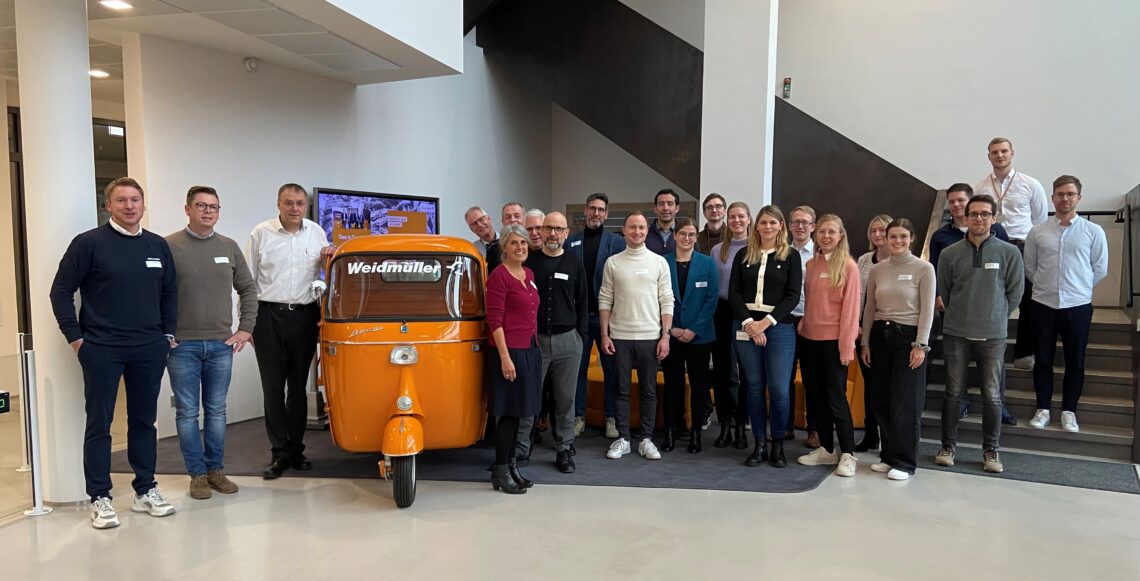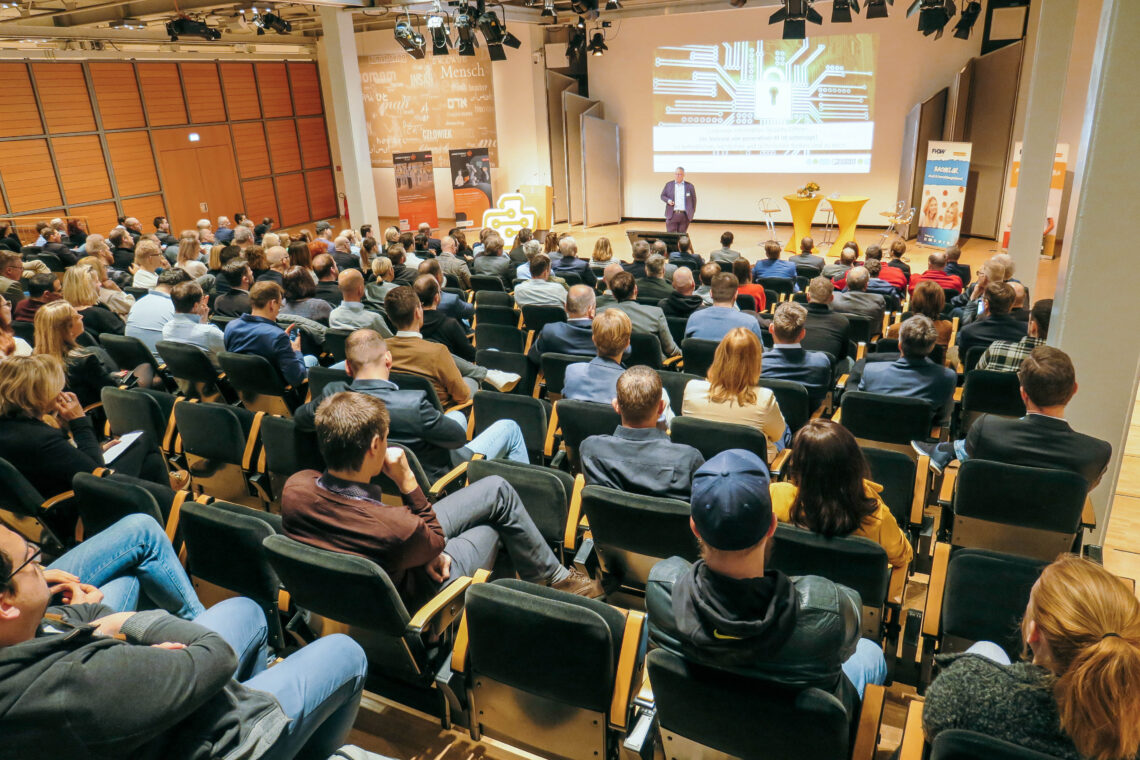
Data-based sustainability strategies: How Weidmüller makes its goals measurable
24 representatives from eleven companies and four research institutions came together at Weidmüller Interface GmbH & Co. KG in Detmold for the third meeting of the industry working group as part of the it’s OWL project ‘DualStrat – Strategic Management of Dual Transformation’. The focus was on the data-based management of a sustainability strategy.
Smart Industrial Connectivity: Electrification, automation, digitalization, electrical connection technology, electromobility and renewable energies are markets in which Weidmüller is at home. Founded in 1850, the family-owned company is represented in over 80 countries with production facilities and sales companies. As a global player in electrical connection technology, Weidmüller achieved a turnover of more than one billion euros in the 2023 financial year with around 6,000 employees worldwide – including around 2,000 at its headquarters in Detmold, in East Westphalia-Lippe. Weidmüller has also been addressing the issue of sustainability for many years. Mark Edler, Vice President Global Environment, Health, Safety at Weidmüller, presented the development path, the target vision and the current status of the sustainability strategy using the example of the sustainability compass, among other things. The question that is currently driving the company is: How can a strategy be developed with a control system of key figures (ratio figures, derived key figures) of CSRD? And what can a daily ‘KPI dashboard’ that can be individually configured for different departments and levels look like in the end?
How Weidmüller implements its sustainability strategy
Agile methods were used to achieve this goal, such as sprint-oriented and incremental project planning according to Scrum, consisting of product owners, Scrum masters and development teams. This leads to rapid adaptation in the recording of key figures and at the same time to good team dynamics. Two weeks of preparation and two weeks of targeted work in the sprint are scheduled. The team itself consists of employees from Sustainability, Controlling / Business Intelligence and the necessary specialist departments. Global key figures on the key topics are made usable with the help of PowerBI. PowerBI is a software from Microsoft that helps companies to analyze data from various sources, prepare it visually and present it in interactive dashboards in order to make better decisions.
The challenge of data management: making optimum use of existing systems
A decisive factor here is the quality of the master data when selecting the KPIs. A digital connection to existing data or a query of the individual countries / specialist departments is carried out via PowerApps or SharePoint lists. In addition, there is close coordination with the specialist departments on the individual points of the ESRS. A major hurdle is always the issue of ‘data’, i.e. its collection and processing. Existing data must be transferred to new systems. This raises the question of whether new software systems are required for this. Weidmüller has decided to work entirely with existing systems such as SharePoint and PowerBI.
What happens next?
The fourth meeting of the industry working group will take place on Wednesday, April 09, 2025. It will be hosted by Schmitz Cargobull AG in Vreden. The project results will be successively made available to all interested parties on the it’s OWL innovation platform: https://plattform.its-owl.de
Wuppertal Institute presents ESRS data management tool
Andres Alcayaga from the Wuppertal Institute presented the ESRS data management tool developed in the project. This Excel tool supports companies in implementing the Corporate Sustainability Reporting Directive (CSRD). The aim is to simplify the aggregation and management of the required sustainability data. To this end, it provides a clear presentation of the European Sustainability Reporting Standards (ESRS) to guide companies through the regulatory process.

The tool covers the General Disclosures of ESRS 2 including Minimum Disclosure Requirements as well as all topic-related standards. In addition, it provides a clear translation as well as numerous implementation notes and word definitions to convert the complicated standards into a manageable format suitable for everyday use. The materiality analysis is not part of this tool, but is a prerequisite for use. The Excel tool is available on the it’s OWL innovation platform.
To the Excel tool from DualStrat







